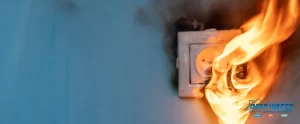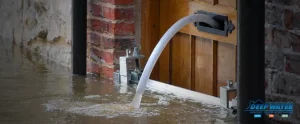A smoke alarm is probably the best investment you can make when it comes to home safety. However, if you want to go to the next level in fire protection like putting out a fire before it spreads through your house, you’ll have to consider getting a fire extinguisher.
A home fire extinguisher can be an important component of your home’s fire safety plan. It can be used to put out small fires or to suppress them until help arrives from the fire department. Caution should be taken though, because this popular fire fighting equipment contains hazardous materials under high pressure. More importantly, if you have an expired fire extinguisher at home, this should not be thrown in with the rest of your trash. Instead, you need to find out how to dispose of it properly.
When Do Fire Extinguishers Expire?
Fire extinguishers usually last between 5 to 15 years, although often, you can find an expiration or manufacturing date listed on some canisters. This should help you determine the age of your fire extinguisher.
Nevertheless, it’s not always necessary to look at the fire extinguisher expiration date in order to determine if your model should already be disposed of. Examine your fire extinguisher closely and look for any bumps or dents, a missing pin/tamper seal, or a pressure gauge needle that points to the red or white section of the equipment. If one or all of these are present, they are indications that it is time to throw away the extinguisher.
What to Do With Expired Fire Extinguishers
Some components or parts of a fire extinguisher can still be repaired, especially if this is a relatively new unit. If you’re unsure if the equipment should be repaired or thrown away, you can call the manufacturer for clarification.
On the other hand, if your fire extinguisher shows an expiration date that has already lapsed, you should not just throw it away like ordinary trash. Fire extinguishers are considered hazardous items and the high-pressure chemicals that they contain can prove to be quite dangerous if they are not handled properly.
When dealing with an expired, damaged or old extinguisher, you can call your local fire department to find out if they take drop-offs. If not, you should take the unit to a hazardous waste disposal center. Alternatively, if the fire extinguisher is empty, you can contact your local recycling center and inquire about dropping off the steel container.
How to Dispose of an Expired Fire Extinguisher
Dropping expired fire extinguishers off at your local fire station is one of the best ways to dispose of it. However, this will also depend on what type of extinguisher you have.
1. Water-Based Extinguishers
Water extinguishers are usually recyclable, so it is possible to empty the cylinder by yourself. Start by draining the contents and once the cylinder is completely empty, carefully take the head off. Call your local government for existing guidelines on proper fire extinguisher disposal. In all likelihood, they can help you recycle the head as well as the steel cylinder.
2. CO2 Extinguishers
For this type of extinguisher, you need to check if it has a hard-horn. If it doesn’t, bring the extinguisher directly to your local recycling center. On the other hand, if a hard horn is present, you can empty the fire extinguisher by turning the handle on the discharge side. Leave the unit for a few days, ensuring that it is placed in an upright position. Afterwards, remove the head off the cylinder and bring the extinguisher to your local recycling center.
As mentioned previously, if your CO2 fire extinguisher does not have a hard horn, you should not attempt to empty the cylinder. This fire extinguisher type has strong built-in pressure. Without a hard horn, the cylinder can shake violently when the CO2 inside is released, causing an injury to you and to those around you.
3. Powder Extinguishers
A powder fire extinguisher must be disposed of professionally. Simply bring it to your local recycling center and they will dispose of the equipment for you.
Powder fire extinguishers are not entirely toxic, but they can cause skin irritation. The powder content also has a fine texture and can be easily inhaled when it is being discharged. In terms of volume and speed, the powder can be difficult to control once released, so you could end up getting injured.
4. Foam Extinguishers
A foam fire extinguisher can be safely emptied on your own, although caution should be observed. Ideally, the content should be disposed of in a sewer waste. Spillages should be avoided as the foam content is slightly toxic. Once completely emptied, allow the cylinder to sit for a few days before taking the head off and bringing the extinguisher to your local recycling center.
Emptying a foam fire extinguisher can be messy, so you need to be careful. Also, do not attempt to empty the foam content down your bathroom sink or toilet bowl. This is because the foam can overwhelm your household plumbing systems, and could result in unwanted problems. Finally, if you’re uncomfortable completing this process, you can just take your extinguisher to a local fire extinguisher disposal near you and they will handle things from there.
5. Wet Chemical Extinguishers
An expired fire extinguisher of this type should be disposed of by professionals. They should be taken to the nearest local recycling center where they will be disposed of carefully and properly.
Key Takeaway
The fire extinguisher should be made part of every home’s fire prevention plan. However, a malfunctioning or expired fire extinguisher could put lives at risk and damage property at the same time.Thus, these essential safety equipment must regularly be maintained in order to fulfill their intended purpose.
Meanwhile, if fire extinguishers need to be disposed of because they have either expired or have suffered damage, this should be done properly and according to existing guidelines as provided by the Occupational Safety and Health Administration (OSHA). Failing to do so has the corresponding consequences, including an OSHA fine for expired fire extinguisher. If a fire breaks out. there’s also the possibility of facing fire damage because your extinguisher has become ineffective. Consequently, you’ll need to get the services of fire damage mitigation professionals.
Deep Water Emergency Services & Mitigation is the expert when it comes to fire damage mitigation.
When your fire extinguishers fail to work, it can be difficult to put out a small fire, and this can quickly turn into a full-blown blaze. In the end, you’ll have to face the specter of fire damage. No need to worry though, because Deep Water Emergency Services & Mitigation is always around to help you deal with this type of disaster.
Just call our fire damage mitigation Denver, CO, specialist who will quickly come to your aid by performing the needed assessment and tell you what can be done. Rest assured that we’ll help you restore things to their pre-damaged condition. Call now.






